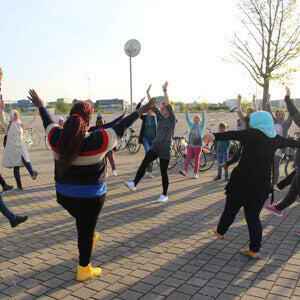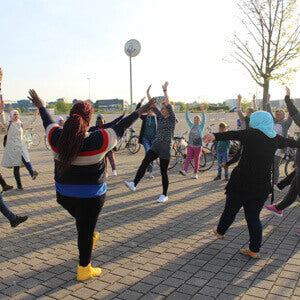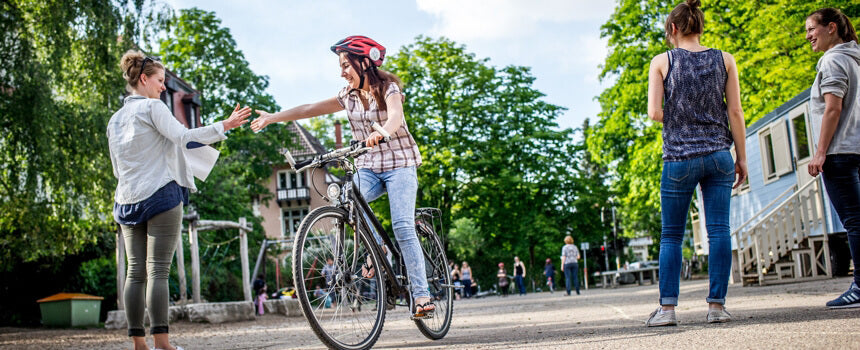
Empowering refugee women through cycling training

need
Social and cultural integration of refugee women and women with a migration background.
activity
Volunteer trainers teach the refugee women how to ride a bike in courses lasting several hours.
Measurable performance
Number of cycling training sessions for refugee women.
Result
Through the cycling courses, the women learn how to ride a bike and increase their opportunities for mobility.
Systemically relevant impact
Improved access to further training and employment opportunities, cultural offerings, creation of new social contacts and improved integration opportunities.
background


The good deed
AboutGermany
Berlin
Capital city

82 521 653
Population
46.136
Gross domestic product
per capita per year

5
Human Development Index
(Human Development Index)




